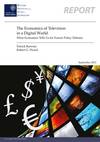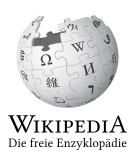The Reuters Institute for the Study of Journalism frequently publishes high profile research. Patrick Barwise and Robert G. Picard’s report ‘The economics of television in a digital world: What economics tell us for future policy debates’ is one of the latest pieces in this series. In this study, 47 pages in length, the two scholars provide an analysis of the economic factors underlying televison in the digital world. They focus on the UK context and, as you would expect, base their arguments on welfare economics. This means that they regard media content and services as merit goods, associating with them positive externalities which could be underprovided for in the free market economy and, therefore, require the active role of the state beyond the provision of a level playing field.
 Having provided a historical contextualization, the authors detail television’s three demand side markets: the audience market, the advertising market and the consumer payment market. They discuss the three main types of television funding – licence-fee, advertising, and subscription – and demonstrate how these compete and coexist. Subsequently, Barwise and Picard turn to the impact of digital switchover for television economics. In the fully-digital, multichannel television environment the UK could now move to a free market in television, funded by subscription and advertising. The possible implications for the BBC are clear: no Corporation, a much smaller BBC, or, third, competitive funding for a certain amount of public service content. Since the future role of public service broadcasting in general, and the BBC in particular, is an increasingly controversial debate in the UK and, as Ofcom’s reviews of public service television have revealed, the status quo, i.e. no policy change, is off the government’s agenda, the Conservative/Liberal Democrat coalition will have to decide on one of these options.
Having provided a historical contextualization, the authors detail television’s three demand side markets: the audience market, the advertising market and the consumer payment market. They discuss the three main types of television funding – licence-fee, advertising, and subscription – and demonstrate how these compete and coexist. Subsequently, Barwise and Picard turn to the impact of digital switchover for television economics. In the fully-digital, multichannel television environment the UK could now move to a free market in television, funded by subscription and advertising. The possible implications for the BBC are clear: no Corporation, a much smaller BBC, or, third, competitive funding for a certain amount of public service content. Since the future role of public service broadcasting in general, and the BBC in particular, is an increasingly controversial debate in the UK and, as Ofcom’s reviews of public service television have revealed, the status quo, i.e. no policy change, is off the government’s agenda, the Conservative/Liberal Democrat coalition will have to decide on one of these options.
This is a valuable and timely reading because, on 24 October 2012, the last part of the UK’s five channel analogue television system was switched off. On the one hand, switchover creates new opportunities for policy-makers while, on the other, it poses new challenges. The future of the BBC and public service broadcasting in the UK as we know it is possibly more at stake now than ever before.





